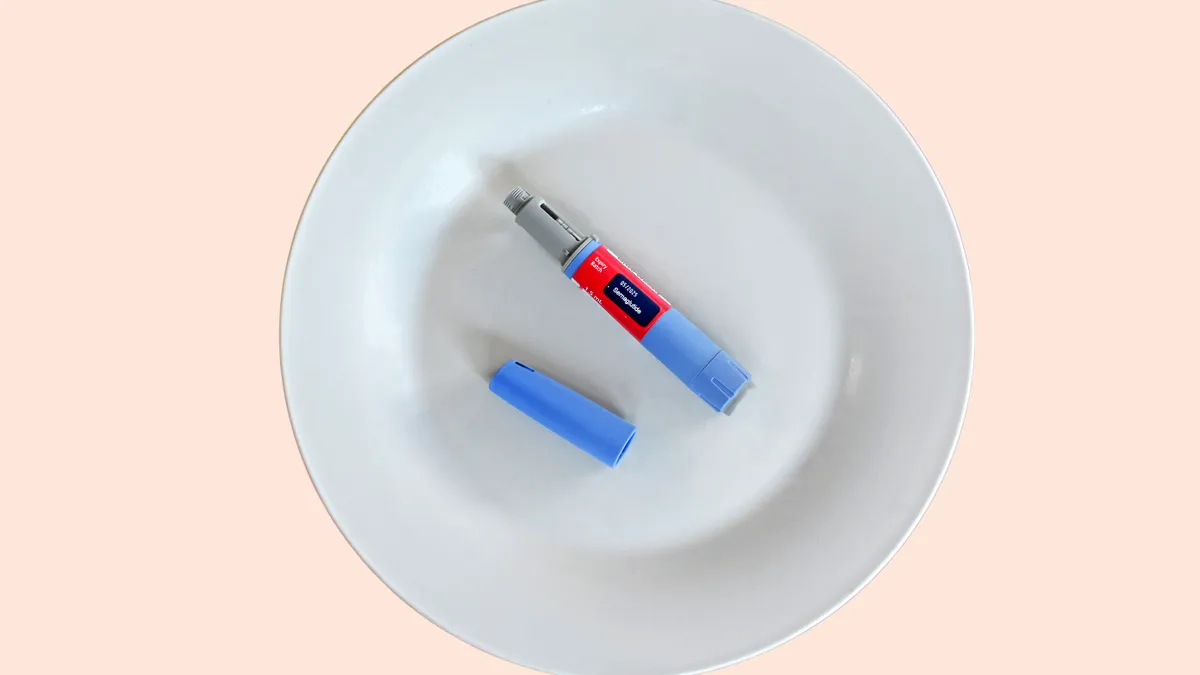Dive Brief:
- The emergence of diabetes and obesity drugs that improve cardiovascular outcomes will have little impact on demand for medical devices, according to analysts.
- Responding to new data on Wegovy showing the treatment prevented heart attacks and strokes, analysts at William Blair predicted that issues such as “nontrivial side effects, cost concerns and patient persistence” mean physicians will continue to use diabetes devices alongside and instead of the Novo Nordisk drug and other GLP-1 agonists.
- Analysts also see a limited threat to bariatric weight-loss surgery from the drug and similar obesity medicines.
Dive Insight:
Novo Nordisk and Eli Lilly have established GLP-1 agonists as a fast-growing class of medicines in recent years. Across a string of releases of clinical trial data, the companies have linked the molecules to improved glycemic control and weight loss. Novo Nordisk further strengthened the evidence behind the treatments on Tuesday by linking Wegovy to a 20% reduction in major adverse cardiovascular events.
The results led medtech analysts to consider whether Wegovy and similar drugs could reduce the need for medical devices used in the treatment of diabetes and cardiovascular diseases. William Blair analysts told investors that they “do not expect a meaningful impact on device utilization” from the emergence of GLP-1 agonists in a Tuesday research note.
J.P. Morgan analysts’ note to investors focused on demand for cardiovascular devices. “We don’t see this materially impacting cardio volumes in our 5+ year modeling horizon, and even likely longer term,” the analysts wrote.
They said their confidence in the continued need for medical devices reflects a belief that cardiovascular disease remains a high risk in obese people on Wegovy. “Patients will need to take these medications for years in order to see a benefit,” they wrote, noting they “don’t view [multi-year treatment] as a given.”
In the diabetes market, “no single treatment is likely to overwhelm the demonstrated benefits of CGM and insulin pumps in Type 2 patients given patient access, complications and patient falloff that has been observed with the GLP-1 agents to date,” the William Blair analysts wrote.
Novo Nordisk’s cardiovascular disease data added a new aspect to a debate that was already underway. Last month, Intuitive Surgical CFO Jamie Samath told investors that U.S. bariatric surgery growth slowed in the second quarter, adding that “some customers have indicated that they are seeing increased patient interest in weight loss drugs.”
Samath concluded that it is too early to tell if the slowdown “is a temporary pause as patients evaluate these new drug therapies, or if it is a trend that continues.” The comment led analysts at J.P. Morgan to talk to key opinion leaders.
“We don’t believe that GLP-1 agonists are an existential threat to robotic bariatric surgery volumes,” the analysts wrote in a note to investors last week. “We don’t see a risk to total Intuitive procedure growth and continue to expect bariatric to remain a small, but nice, upside driver of growth.”
The conclusion, they said, is underpinned by evidence that surgery provides “superior and more sustainable clinical outcomes.”










